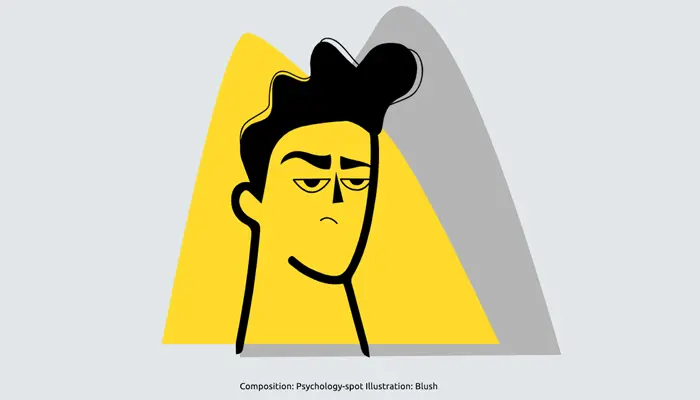
Dealing with a bitter person is not easy. For that person there are no middle terms. Everything is bad, negative, frustrating … And it is not difficult for him to end up infecting us with that misery and bitterness.
Unfortunately, it is not always possible to get that person to see the most positive and bright side of life, so sometimes we have no choice but to shield ourselves against bitterness.
How does bitterness arise?
No one is born being a bitter and resentful person. Bitterness is something that develops over time. As noted by Franz Kafka: “The gesture of bitterness of man is often only the petrified embarrassment of a child.”
Bitterness is a difficult feeling to define since it contains different emotions. Resentment, anger and sadness play a leading role, but there is also a hint of disappointment and frustration.
In fact, bitter people have often gone through several disappointments throughout their lives. The problem is that they have not been able to turn the page, they have been stuck in these situations, rumiating what happened to them, reliving the facts over and over again. That generates that deep inner frustration, spiced up by the fact that they find it impossible to go back to make other decisions.
The bitter person is anchored to a past that cannot change, and that frustrates him. To which is add that he has chosen – more or less consciously – to see through a negative prism what happened, drawing generalizing conclusions that reaffirm his pessimistic vision of the world, life and the others.
The bitter person feels that he has lost control of his life, has fallen into a state of learned helplessness marked by an emotional numbness in which there is practically only room for negative emotions. This person assumed the role of victim, has put out the locus of control assuming a defeatist attitude. As Paul Watzlawick said: “Leading a bitter life can be done by anyone, but bittering life on purpose is an art that is learned.”
The emotional impact of dealing with a bitter person
Often bitter people are related from a guilty and empathetic stance. In their personal relationships they may be tempted to blame others when things go wrong or do not flow as expected.
Due to their locus of control external, they feel an impulse to look for the guilty out of themselves, so at that moment their empathy is “turned off.” These people are so saturated with their negative feelings that they don’t have a clear mind to practice mutual respect and perceive the feelings and needs of the others.
Therefore, those who have to relate to bitter people may feel that it is impossible to reason with them, they always end up feeling that nothing they do is good enough or they are drawn into a series of interpersonal conflicts or the pessimistic view of the world. In the long run, that situation can become emotionally exhausting.
The keys for dealing with bitter and resentful people
• Assume that it is nothing personal. Frustrated and bitter people often have conflicting interpersonal relationships with the others, not just with us. That means that, in most cases, they have nothing against us, it is just their usual way of relating. Understanding that it is not a personal matter will help us keep our emotions under control and assume the necessary psychological distance to better deal with that dose of bitterness and frustration.
• Understand what happens to them. Empathy unites. Bitter and frustrated people, although difficult to deal with, are not bad persons, they only carry a heavy emotional burden on their backs which they have not known how to get rid of. These are people who, although they don’t usually recognize it, carry an overwhelming burden of disappointment, anger and sadness that often enslaves them. They generally don’t know how to assertively manage their emotions, they need help. Therefore, a dose of empathy, patience, kindness and compassion can be the perfect antidote. We must remember that the happy people are those who feel loved, respected and validated, and do not usually bother or mistreat the others.
• Detect the activators of bitterness. Luckily, bitter people do not usually express their resentment constantly. Typically, they have some sensitive points that activate bitterness. It is at that moment when they become extremely pessimistic or develop passive-aggressive behaviors. Knowing what are the activators of bitterness will allow us, on the one hand, to avoid them and, on the other, to know that when these people are activated they will be more conflictive, so at that time it is better to change arguments or leave them alone to reflect .
• Stop the passive-aggressive behavior. Bitter people do not usually behave openly hostile, but mask that anger under a passive-aggressive attitude. It is important to know how to detect these behaviors and stop them because they can be very harmful. Directing the accusatory finger towards others so that they carry faults that do not belong to them, throwing hints or playing with silences are some of the most common passive-aggressive strategies in whose networks we should not fall. Being empathetic with a person and understanding where their bitterness comes from does not mean participating willingly in their game.
In any case, we must remember that getting bitter and doing nothing is much simpler than facing negativity and trying to solve our problems. It is easier to be unpleasant than positive, but certainly it is also much more harmful to ourselves and those around us.



